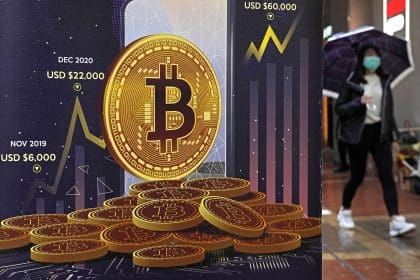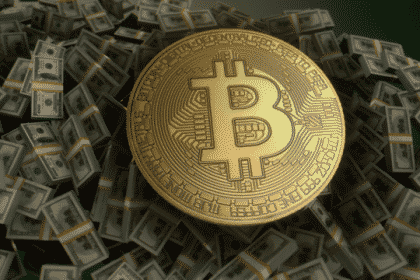Centralized Digital Bank Currencies: The Future of Digital Money Says IMF Chief

After working for over a decade on modernizing its payment system, the Bahamas is now home to the world’s first central bank digital currency called the “sand dollar.”
For this archipelago of 700 Caribbean islands, moving to a mobile payment system “will be addressing [the] unbanked and underbanked, specifically trying to improve the access to services,” said John Rolle, governor of the central bank of the Bahamas, at an International Monetary Fund event Thursday. This is particularly vital for the speedy economic recovery of a country in the path of many hurricanes, he said.
Digital transactions are increasingly becoming the consumer choice of mobile payment. The public sector has to catch up with the private sector and provide an equal standard of service for all, allowing everyone to have the chance to use these services across the archipelago, Rolle said.
Nevertheless, bringing in new providers while modernizing the Bahamian payment system also meant wrestling with the issue of interoperability between providers and other currencies, and Rolle sees the central bank digital currency as the “glue that could connect the system together.”
Today, 110 countries are either mulling over or piloting the implementation of central bank digital currencies, said IMF Managing Director Kristalina Georgieva.
Another form of digital money, she explained, is a “stablecoin” that is issued by the private sector like the United States Digital Coin that is also backed by reserve assets. If one decides to cash in their USDC, for example, they would get a one-on-one exchange of one dollar per USDC.
Both central bank digital coins and stablecoins have price stability and are backed by actual money. It should be noted that some stablecoins, however, are “invested more like money market funds and therefore they bring more risk to those that invest into them,” Georgieva cautioned.
“The safest form of digital money is central bank digital currency,” Georgieva said; it is digital money that is not only backed by the state but also regulated by its monetary policy.
People also need to understand the difference between centralized digital currencies and popular cryptocurrencies, like Bitcoin. Cryptocurrency is more a “higher risk investment opportunity,” she said, and the asset value changes. It is not stable nor is it backed, thus is poised as an investment in an asset rather than its original purpose as a tool for economic exchange.
Georgieva congratulated the Bahamas for leading what she described as a “revolution….in terms of speed, cost [and] accessibility” of the payment system. However, she pointed out it was also an evolution of physical and institutional infrastructures that will be required to support this digital system, which has regulators tussling with questions of interoperability between financial systems and currencies, trust in these government structures, and “the risks associated with shifting gears in that digital direction.”
Digital currencies must of course face digital risks, like cyberattacks, money laundering and the likes – potentially even on behalf of corrupt state actors. For example, the South American country of Venezuela has been battling hyperinflation for years.
In 2017, according to Statista, it had an average inflation rate of 438.12%. In a NASDAQ report, the annual inflation had spiked to 2940.8% this past April – a stark number compared to the U.S. annual inflation rate increasing that same month to 4.5%, as recorded by the U.S. Bureau of Labor Statistics.
Venezuela’s authoritarian leader, Nicolas Maduro, announced in January that the country’s currency will be shifting entirely to a digital coin – mostly to combat what he said was a U.S. dollar war against Venezuela’s physical currency.
With such alarming inflation rates and occasional arbitrary monetary errors – like the Petro, an untrusted government implemented cryptocurrency that most Venezuelans refuse to use – it is not surprising if its citizens don’t trust this digital shift. Given the country’s spiraling economic crisis and mass migration due to rampant crime, insecurity and food shortages, many Venezuelan migrants have already resorted to digital tokens to send money back to their struggling families.
The private sector is offering this helpful, inclusive, cross-border movement of digital tokens, which results in an international money conversion, Rolle said, and “there are a lot of complex regulatory and other issues [like] consumer protection as well, and that [remain] to be resolved.” In a predictable, stable, and regulated way.
The “moral of the story,” she said, is that financial regulators across the world have their work cut out for them while they grapple with digital monetary policies.
Digital money isn’t going anywhere. This new form of payment infrastructure and service is “definitely going to only exponentially grow in the years to come” and Georgieva said the IMF plans to work with its member states “to navigate, and also to regulate to protect consumers and protect the economy.”























